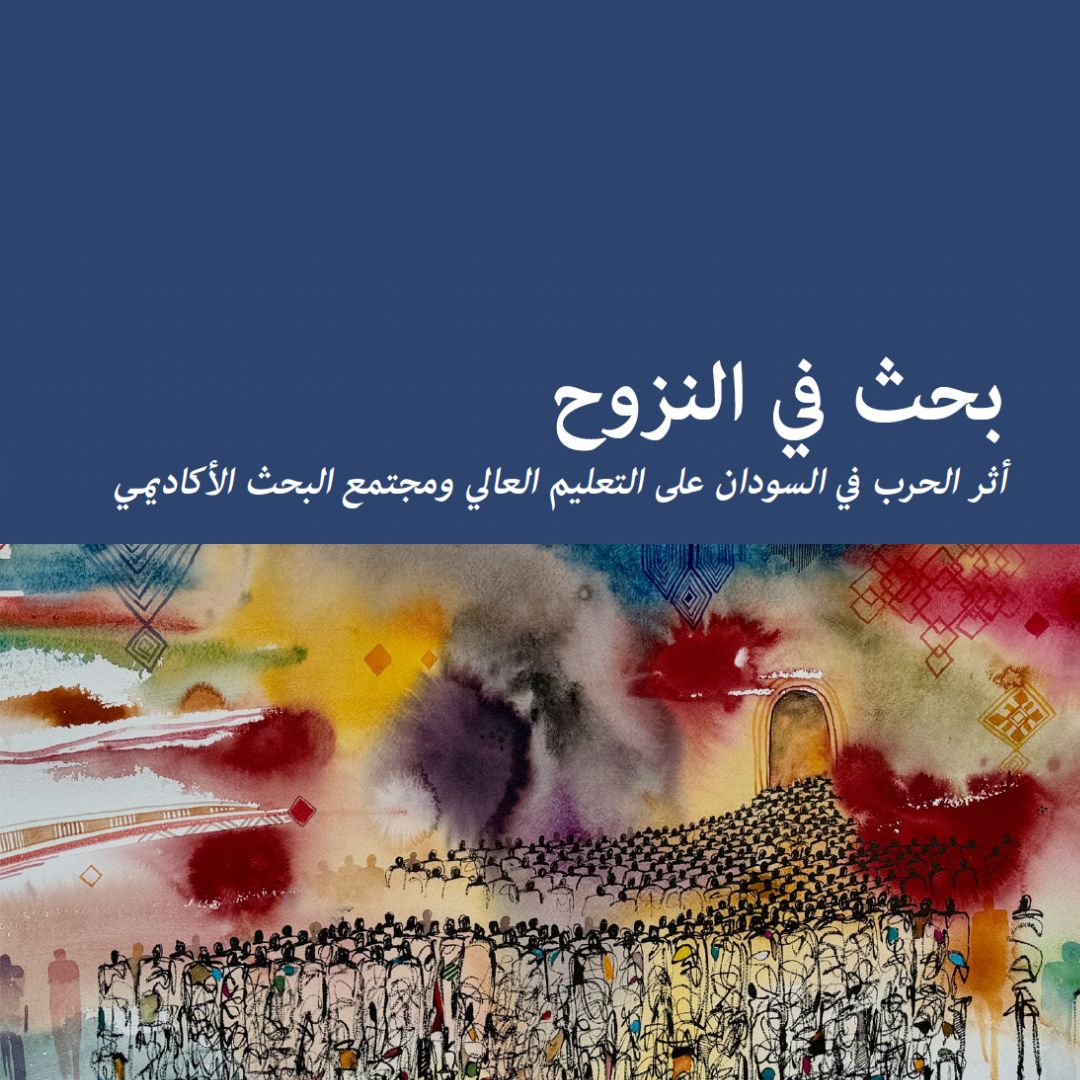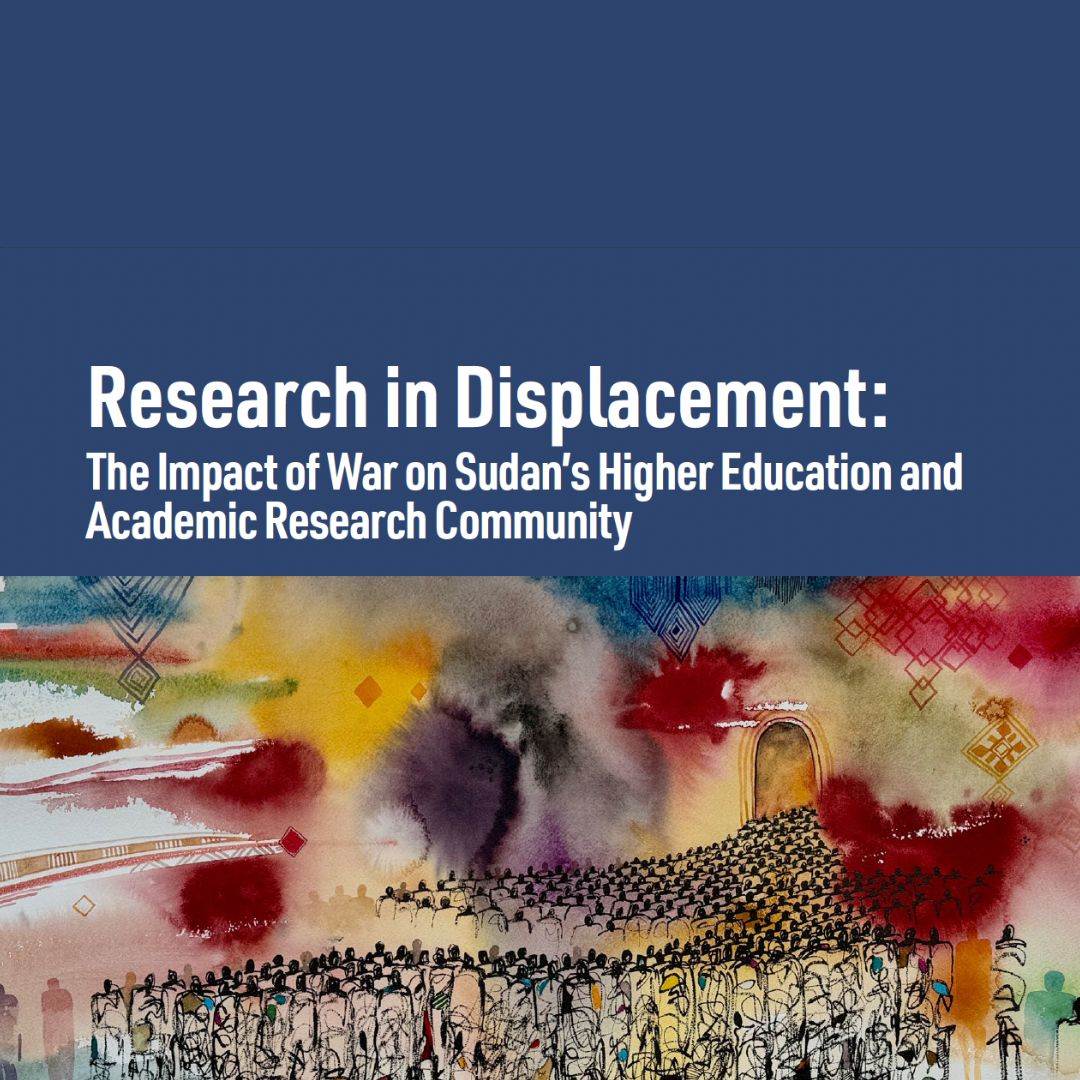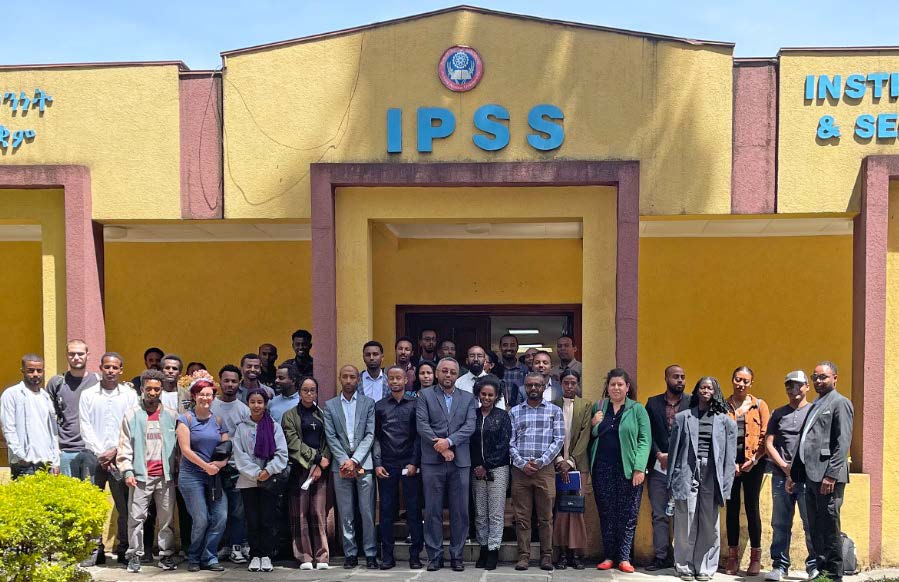About RVI
The Rift Valley Institute (RVI) is an independent, non-profit organisation working in eastern and central Africa since 2001. The RVI is a research and educational organisation with a social mission: to create a better future for the peoples and communities of Eastern and Central Africa by advancing relevant knowledge of the region through collaborative research, education and training, public information and dialogues, and promoting culture and heritage. A UK-registered charity, the Institute has offices in Nairobi, Juba, Mogadishu, Addis Ababa and London. RVI is a leader in practical social research, policy analysis, training and public information. Our field-based research emerges from and seeks to respond to ideas generated by the communities and institutions with which we work.
Our Vision, Mission and Values
Our Vision
Making local knowledge work for the benefit of the people of Eastern and Central Africa.
Our Mission
The RVI works to create a better future for the peoples and communities of Eastern and Central Africa by advancing relevant knowledge of the region through collaborative research, education and training, public information and dialogues, and promoting culture and heritage. The Institute bridges development practice and policy, elevating local voices, knowledge and action.
Our Values
The following values guide and underpin our work:
- Respect: We demonstrate respect for local knowledge and the partners and the communities we work with and those who work with us.
- Independence: We are independent in our thought and action and produce research and deliver programmes free from external interests.
- Integrity: We work with transparency and honesty to ensure accurate and open access to information, and we are accountable for our work and to those we work with.
- Collaboration: We believe respectful partnerships are the basis for successful development and we are committed to long term, mutually beneficial collaboration between indigenous institutions, local researchers and international specialists.
- Excellence: We strive to produce original work and to sustain our strong reputation for research, public information and training.
The Somali Dialogue Platform
Introduction
The Somali Dialogue Platform (‘The Platform’) is a research and dialogue programme managed by the RVI which seeks to support more peaceful, inclusive and sustainable political processes that can transform Somalia’s political settlement. The Platform seeks to create dialogue spaces trusted and led by Somalis, where they can confidently address past conflicts and grievances and collaborate to resolve fundamental differences in their governance ideas.
The Platform works with various local partners who work on different thematic areas and locations across Somalia in difference Federal Member States (FMSs) namely Banadir Region, Puntland, Galmudug, Hirshebelle and Jubbaland.
The Platform is looking for an audit firm to undertake independent closeout audit of all the partners for the grant period 1 July 2023 to 30 June 2024.
There are 7 partners to be audited and the total grant value to all these partners is US$ 1,290,132.90.
Objectives
The objective of the audit is to assess that the partners are compliant with the terms of their grant with the Platform, that funds are managed responsibly and transparently.
The audit of the partner financial statements is to enable the auditor to express a professional opinion on the financial position of the project at the end of the reporting period and of the funds received and expenditures for the reporting period, as reported by the platform and in particular to confirm that the reported expenditure has, in all material respects, been used in conformity with the provisions of their grant with the platform, including any amendments thereto as contained in implementation letters, and any applicable guidelines in force and applicable to the audit scope, and with due attention to economy and efficiency.
The audit report should present a true and fair opinion of the financial management of the project by each implementing partner; evaluate areas of concern and possible risks; and present recommendations to strengthen the financial management systems of each partner. The audit will also present a structure risk score card.
The audit will present a close-out audit and financial report.
Scope of Work
The audit will be carried out in accordance with international standards of auditing. It will include such tests and controls as the auditor considers necessary including visits to project office and sites.
Generally, the audit will focus on:
- Contractual compliance and practice: To assess and confirm that the platform partners are compliant with the contractual obligations. It will also entail confirming that all patners’ management practices, including administrative, contractual, financial and legal are in line with best practices.
- Financial management and internal controls: To assess and confirm that financial management and control environment of the platform partners has been designed and implemented in line with best and generally accepted accounting standards.
- Expenditure and reporting verification: To verify and confirm, on a sample basis, that reported expenditure and other financial reports issued by the platform partners are accurate and a true reflection of the project’s financial activities.
- Contracting and procurement: To establish and confirm that transparent, accountable and appropriate procurement and contracting practices are established and are being followed.
- Regulatory and tax compliance: To assess the regulatory and tax obligations of the platform partners and confirm that all requirements have been met.
Specific focus will be:
- Obtain a sufficient understanding of the Project and of the Terms and Conditions of the Grant Contract.
- To ascertain compliance of the laid down policies, SDP financial norms, grant agreement, relevant legislations, various guidelines, manuals, accountability requirements, procurement guidelines (of goods, works and/or services) etc. as applicable under the project.
- To test whether all the funds were spend in a compliant manner. We suggest a minimum sample of 70% of total expenditure value.
- Expenditure verification for the project expenditures, and reporting on allow-ability/eligibility, validity, accuracy, classification of costs into budget lines etc. It is imperative to confirm the validity of the partner assertions on costs incurred. May include confirmation with payees (if need be).
- Verification that the correct exchange rates have been applied for currency conversions where applicable and in accordance with the conditions of the Grant Contract.
- Verification of the reasonability of administrative (indirect) costs as a fraction of the total direct eligible costs of the Project per Grant Contract. There is need to check and confirm comparability of this across the partners.
- Physical verification of all capital assets purchased by the grants monies for their existence, conditions, location, and values – including reporting on the same.
- To ascertain and evaluate the adequacy and effectiveness of the financial management and internal control framework – segregation of duties, sign off of expenditures, cash & bank reconciliations etc.
- To express an independent professional opinion regarding efficiency, effectiveness and economy of the program operations (VfM).
- Assess Conformity of Expenditure with the Budget and Analytical Review – Assess Conformity of Expenditure with the Budget and Analytical Review –includes tests of authenticity/authorization of the initial budget, conformity with budget, test that all expenses were foreseen in the budget, tests that amendments to the Budget of the Grant Contract comply with the conditions for such amendments, that expenditure for a transaction or action has been classified under the correct heading and subheading of the Financial Report etc.
- To identifying areas for improvement. Identify areas of good practice and themes where lessons can be learned and communicate these to the SDP/Platform team.
Methodology
This audit will require the following general approach to be applied:
Review of IP’s internal control environment, expenditure and reports
The audit will require a review, understand and describe IPs internal control environment. This understanding will inform the auditor on why the IPs uses particular source documentations, authorization guidelines, processes and systems. Key items to be reviewed include:
- Accounting system controls,
- Advances and per diems control,
- Time and payroll controls,
- Authorization controls,
- Procurement controls,
- Capitalizations and asset management controls,
- Reporting and financial performance controls, and
- Review of relevant expenditure documentation.
The audit will require a sample check and review of programme expenditure documentation to assess:
- Supporting documentation,
- Authenticity, validity and reasonableness,
- Contractual compliance,
- Compliance to the SSF accounting instructions,
- Allowable and disallowable costs,
- Questionable costs,
- Adherence to IP internal control,
- Budget limits adherence, and
- Review of IP’s budget performance and report.
The audit will require a review of the IP’s spend against budget report to ascertain accuracy of reports submitted as well as fairness of forecasts submitted.
- Review of IPs financial management and contractual compliance
- Review last IPs reported expenditure against audited expenditure
The audit will require a review of the IP’s financial management practices, which will include
- Tax compliance and administration,
- Application of general acceptable accounting standards,
- Management and application of set procedures and policies,
- Application of relevant regulatory requirements.
Interview key individuals within the finance and procurement departments
The audit will require an in-depth interview with key finance and procurement team members as well as documentation of key policies and procedure documents. This interview will take place at the beginning of the audit and also at the end of the audit. This team will be required to respond to all recommendations and agree on a time-plan to implement the recommendations.
Verify compliance to recommendations of previous audit and Due Diligence Assessment (DDA) findings
The audit will require a follow up of implementation of previous recommendations of similar audits, financial audits and DDAs.
Conduct visits to implementing partners’ offices.
Auditors must visit the main offices of the implementing partners, and specifically the office, which holds highest volume of transactions.
Recipient
Rift Valley Institute – Somali Dialogue Platform (SDP) will be the sole recipient of the output of this process.
Deliverables
Deliverables will include:
- Close out Report.
- Professional Opinion,
- Risk analysis,
- Expense verification Report,
- Verification report on the capital assets purchased by the grant funds under the project, and
Reporting
All reports will have delivered to the following people:
- SDP Deputy Team Leader, Finance, Operations & Compliance
- SDP Team Leader
Timeline for delivery
- Timeline for delivery
The deliverables should be completed by end July 2024.
Firm qualification and experience
- Minimum of five years of relevant audit experience with donor funded programmes working in peacebuilding, dialogue and security sector in Somalia.
- Audit firm should be registered with a professional accounting body which is recognised internationally.
- Experience of working with FCDO, USAID, DANIDA, SIDA, Dutch, EU and/or German funded programmes
- Audit engagement partner should be a registered member of a globally recognised professional body and have at least 15 years of post-qualification experience.
- Audit team members must be members of a globally recognised professional body and have experience in auditing similar projects in Somalia.
Application process
Interested firms should submit their profile, technical and financial proposals with least five professional references to the form here by 12th June 2024. For any queries kindly contact hafsa.hayat@riftvalley.net Only shortlisted firms will be contacted.



